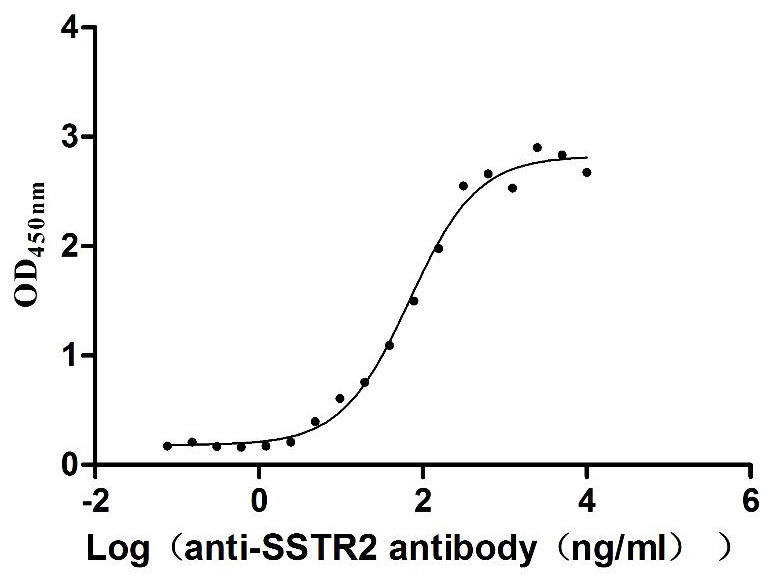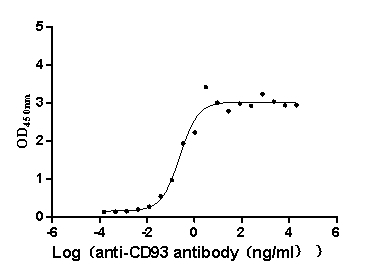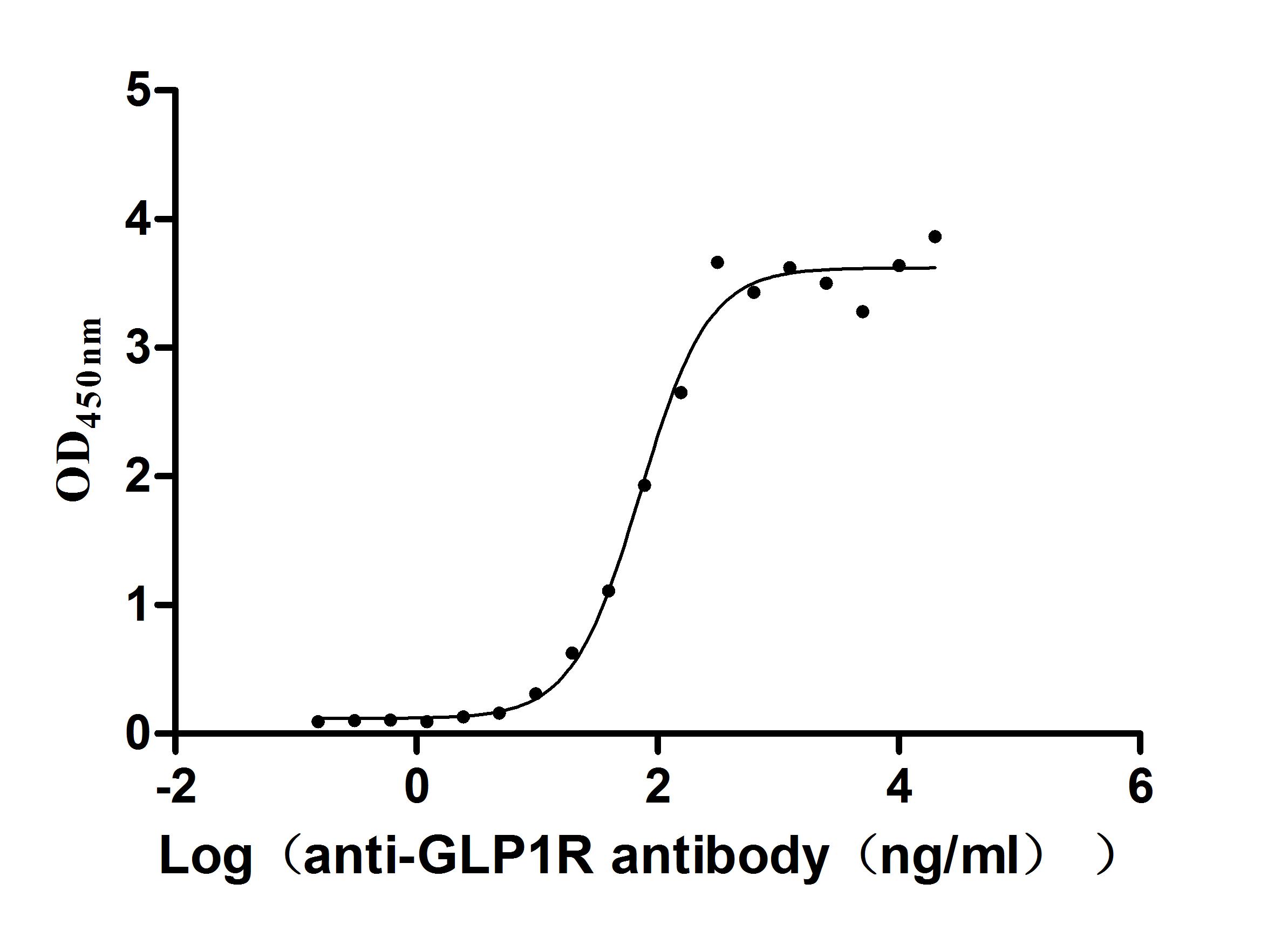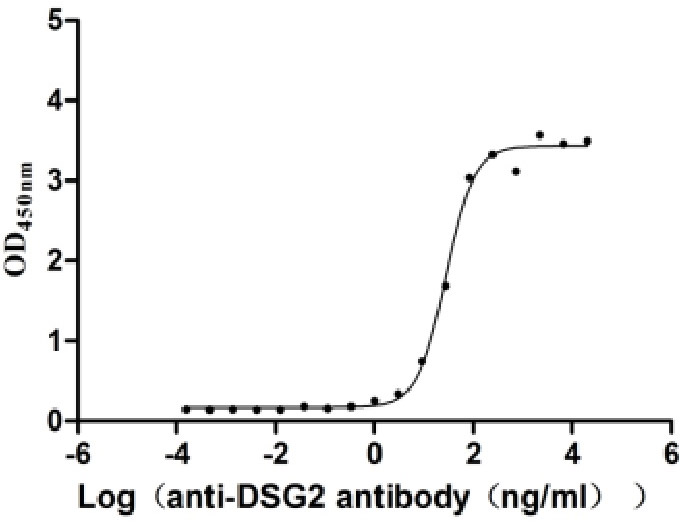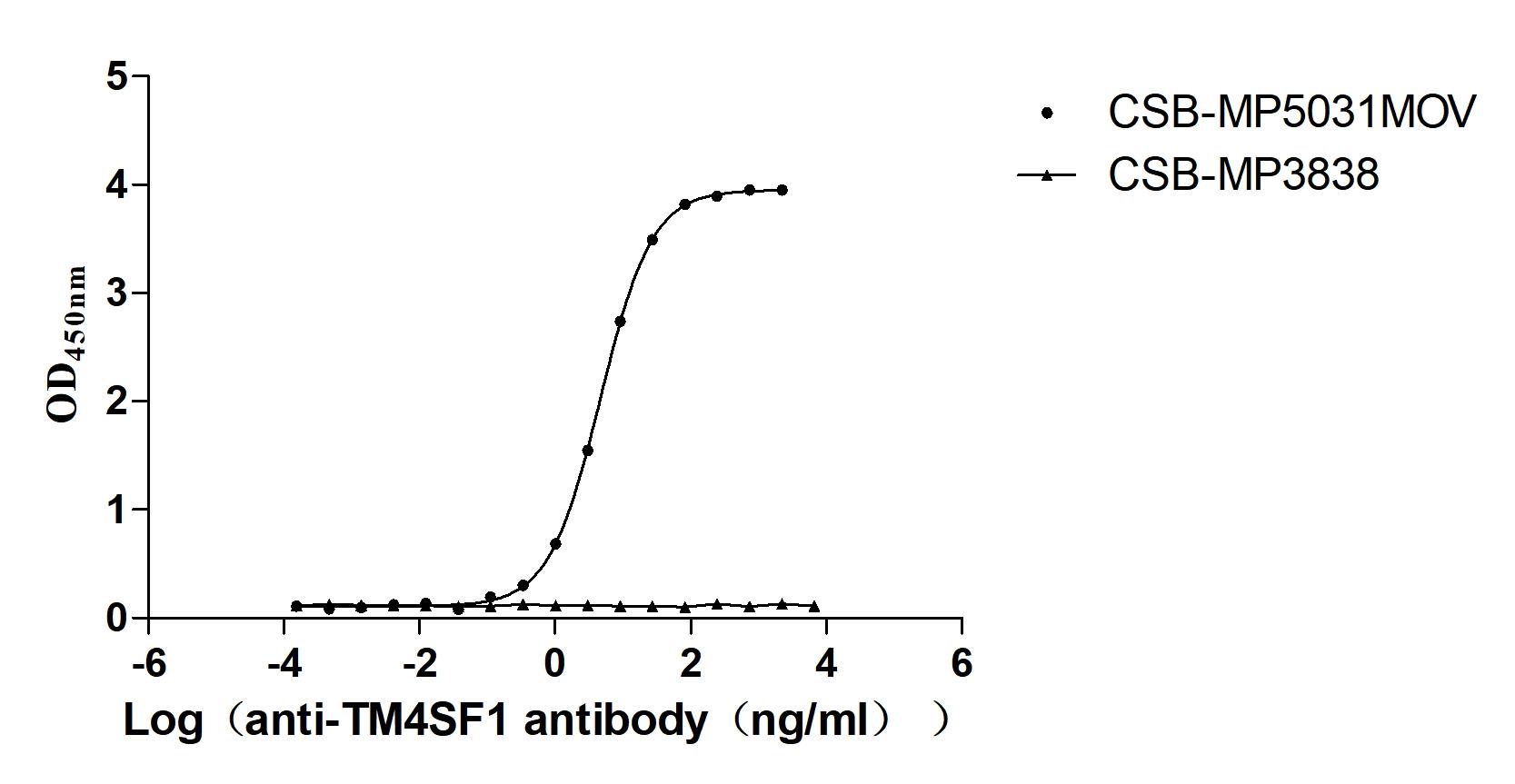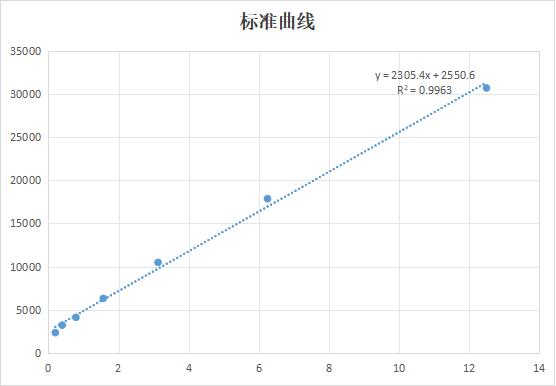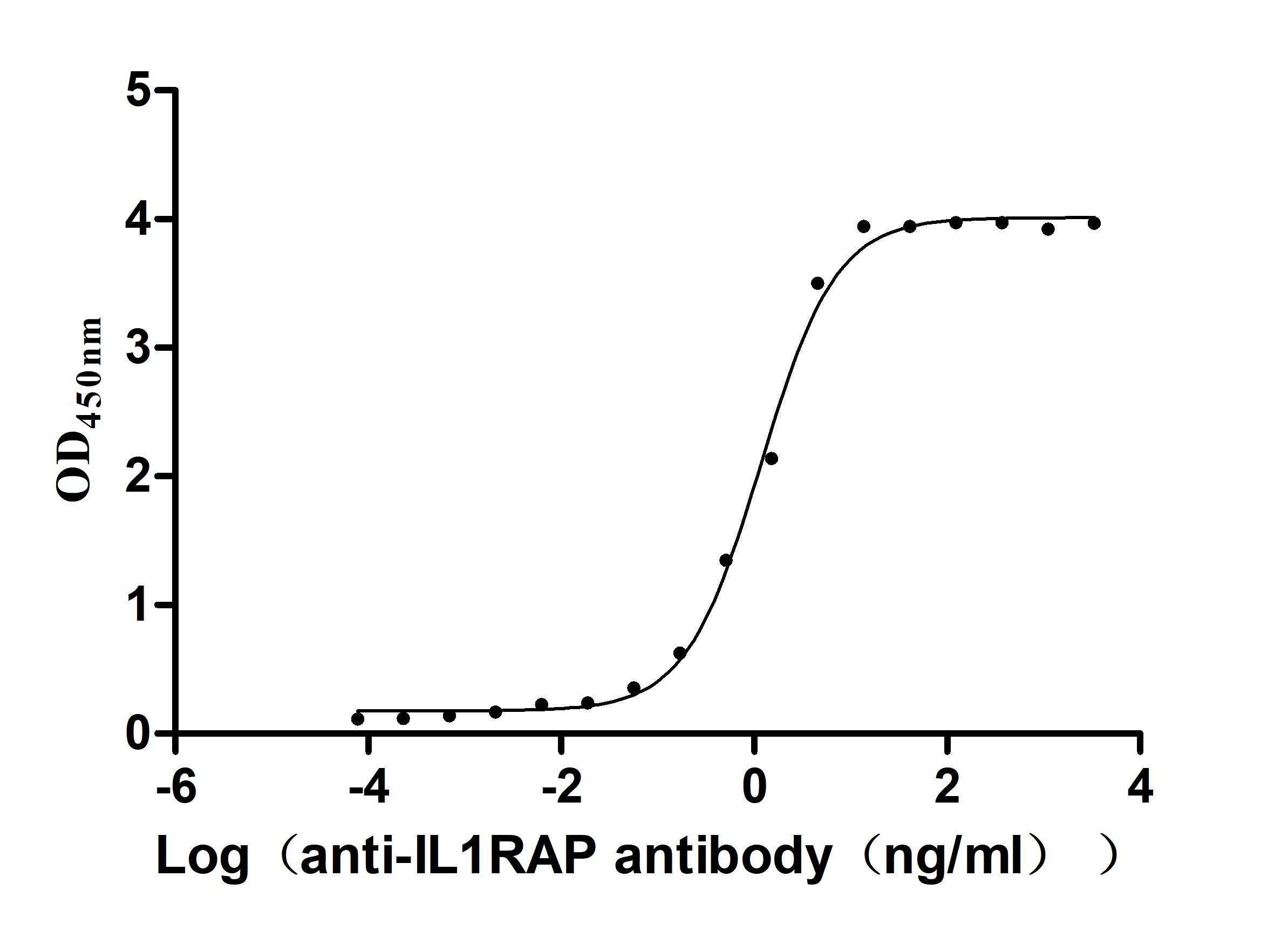Recombinant Influenza A virus Protein PB1-F2 (PB1)
-
货号:CSB-YP313477IFZ
-
规格:
-
来源:Yeast
-
其他:
-
货号:CSB-EP313477IFZ
-
规格:
-
来源:E.coli
-
其他:
-
货号:CSB-EP313477IFZ-B
-
规格:
-
来源:E.coli
-
共轭:Avi-tag Biotinylated
E. coli biotin ligase (BirA) is highly specific in covalently attaching biotin to the 15 amino acid AviTag peptide. This recombinant protein was biotinylated in vivo by AviTag-BirA technology, which method is BriA catalyzes amide linkage between the biotin and the specific lysine of the AviTag.
-
其他:
-
货号:CSB-BP313477IFZ
-
规格:
-
来源:Baculovirus
-
其他:
-
货号:CSB-MP313477IFZ
-
规格:
-
来源:Mammalian cell
-
其他:
产品详情
-
纯度:>85% (SDS-PAGE)
-
基因名:PB1
-
Uniprot No.:
-
别名:PB1; Protein PB1-F2
-
种属:Influenza A virus (strain A/Puerto Rico/8/1934 H1N1)
-
蛋白长度:full length protein
-
表达区域:1-87
-
氨基酸序列MGQEQDTPWI LSTGHISTQK RQDGQQTPKL EHRNSTRLMG HCQKTMNQVV MPKQIVYWKQ WLSLRNPILV FLKTRVLKRW RLFSKHE
-
蛋白标签:Tag type will be determined during the manufacturing process.
The tag type will be determined during production process. If you have specified tag type, please tell us and we will develop the specified tag preferentially. -
产品提供形式:Lyophilized powder
Note: We will preferentially ship the format that we have in stock, however, if you have any special requirement for the format, please remark your requirement when placing the order, we will prepare according to your demand. -
复溶:We recommend that this vial be briefly centrifuged prior to opening to bring the contents to the bottom. Please reconstitute protein in deionized sterile water to a concentration of 0.1-1.0 mg/mL.We recommend to add 5-50% of glycerol (final concentration) and aliquot for long-term storage at -20℃/-80℃. Our default final concentration of glycerol is 50%. Customers could use it as reference.
-
储存条件:Store at -20°C/-80°C upon receipt, aliquoting is necessary for mutiple use. Avoid repeated freeze-thaw cycles.
-
保质期:The shelf life is related to many factors, storage state, buffer ingredients, storage temperature and the stability of the protein itself.
Generally, the shelf life of liquid form is 6 months at -20°C/-80°C. The shelf life of lyophilized form is 12 months at -20°C/-80°C. -
货期:Delivery time may differ from different purchasing way or location, please kindly consult your local distributors for specific delivery time.Note: All of our proteins are default shipped with normal blue ice packs, if you request to ship with dry ice, please communicate with us in advance and extra fees will be charged.
-
注意事项:Repeated freezing and thawing is not recommended. Store working aliquots at 4°C for up to one week.
-
Datasheet :Please contact us to get it.
靶点详情
-
功能:Plays an important role in promoting lung pathology in both primary viral infection and secondary bacterial infection. Promotes alteration of mitochondrial morphology, dissipation of mitochondrial membrane potential, and cell death. Alternatively, inhibits the production of interferon in the infected cell at the level of host mitochondrial antiviral signaling MAVS. Its level of expression differs greatly depending on which cell type is infected, in a manner that is independent of the levels of expression of other viral proteins. Monocytic cells are more affected than epithelial cells. Seems to disable virus-infected monocytes or other host innate immune cells. During early stage of infection, predisposes the mitochondria to permeability transition through interaction with host SLC25A6/ANT3 and VDAC1. These proteins participate in the formation of the permeability transition pore complex (PTPC) responsible of the release of mitochondrial products that triggers apoptosis.
-
基因功能参考文献:
- results constitute an important step forward in the understanding of the cell type-dependent function of PB1-F2. PMID: 26896002
- Influenza A virus protein PB1-F2 translocates into mitochondria via Tom40 channels and impairs innate immunity. PMID: 25140902
- Mutations in PB1-F2 gene is associated with virulence. PMID: 24699508
- NLRX1 enhances macrophage antiviral immunity by interacting with influenza virus PB1-F2 protein, as well as preventing mitochondrial-induced apoptosis PMID: 24799673
- PB1-F2 inhibits the activation of NF-kappaB dependent signalling pathways. PMID: 23704945
- MIF and GNbeta2 interacted with influenza A H1N1 virus PB1-F2 protein. PMID: 23043599
- PB1-F2 protein of influenza A virus interacts with human MOAP-1 protein. PMID: 23236846
- PB1-F2 contribute to superinfection with Gram-positive respiratory pathogens. PMID: 22674997
- Using a flow cytometry-based assay, the s demonstrate that the PB1-F2 protein inhibits MAVS-mediated IFN synthesis by decreasing the mitochondrial membrane potential (MMP). PMID: 22674996
- PB1-F2 protein of influenza A viruses exhibits a type I IFN-antagonistic function by interfering with the RIG-I/MAVS complex, which contributes to an enhanced pathogenicity in vivo PMID: 22050228
- PB1-F2 in the context of pH1N1 moderately modulates viral replication, lung histopathology, and local cytokine response in pigs. PMID: 22379102
- PB1-F2 is of limited importance for the pathogenesis of primary viral infection with human seasonal H1N1 viruses. PMID: 22318139
- PB1-F2 strongly influences the early host response during influenza A virus infection. PMID: 21901097
- characterized the anti-interferon function of PB1-F2 and suggest that this activity contributes to the enhanced pathogenicity seen with PB1-F2 N66S- expressing influenza viruses. PMID: 21695240
- Intranasally infected groups of mice with either influenza A virus PR8 or a genetically engineered virus that expresses the 1918 PB1-F2 protein on a PR8 background, PR8-PB1-F2(1918). PMID: 21379324
- Genome annotations of this virus identified a stop mutation replacing serine at codon 12 (S12Stop) of the PB1-F2 protein; the significance of this in host specialization was discussed. PMID: 19934602
- Alternate mechanisms besides alterations to replication are likely responsible for the enhanced virulence in mammalian hosts attributed to PB1-F2 in previous studies. PMID: 19828614
- structural characterization and oligomerization of PB1-F2 PMID: 17052982
显示更多
收起更多
-
亚细胞定位:Host mitochondrion inner membrane. Host nucleus. Host cytoplasm, host cytosol.
-
蛋白家族:Influenza viruses PB1-F2 family
-
数据库链接:
KEGG: vg:3802042
Most popular with customers
-
Recombinant Human Somatostatin receptor type 2 (SSTR2)-VLPs (Active)
Express system: Mammalian cell
Species: Homo sapiens (Human)
-
Recombinant Macaca fascicularis CD93 molecule (CD93), partial (Active)
Express system: Mammalian cell
Species: Macaca fascicularis (Crab-eating macaque) (Cynomolgus monkey)
-
Recombinant Human Glucagon-like peptide 1 receptor (GLP1R), partial (Active)
Express system: Mammalian cell
Species: Homo sapiens (Human)
-
Recombinant Human Desmoglein-2 (DSG2), partial (Active)
Express system: Mammalian cell
Species: Homo sapiens (Human)
-
Recombinant Macaca fascicularis Transmembrane 4 L6 family member 1 (TM4SF1)-VLPs (Active)
Express system: Mammalian cell
Species: Macaca fascicularis (Crab-eating macaque) (Cynomolgus monkey)
-
Recombinant Human Urokinase-type plasminogen activator(PLAU) (Active)
Express system: Mammalian cell
Species: Homo sapiens (Human)
-
Recombinant Human Interleukin-1 receptor accessory protein (IL1RAP), partial (Active)
Express system: Mammalian cell
Species: Homo sapiens (Human)


